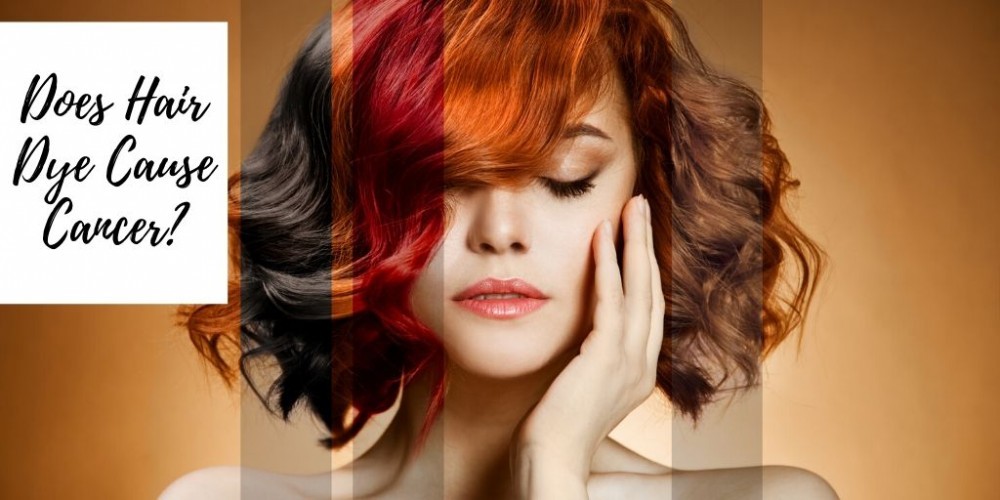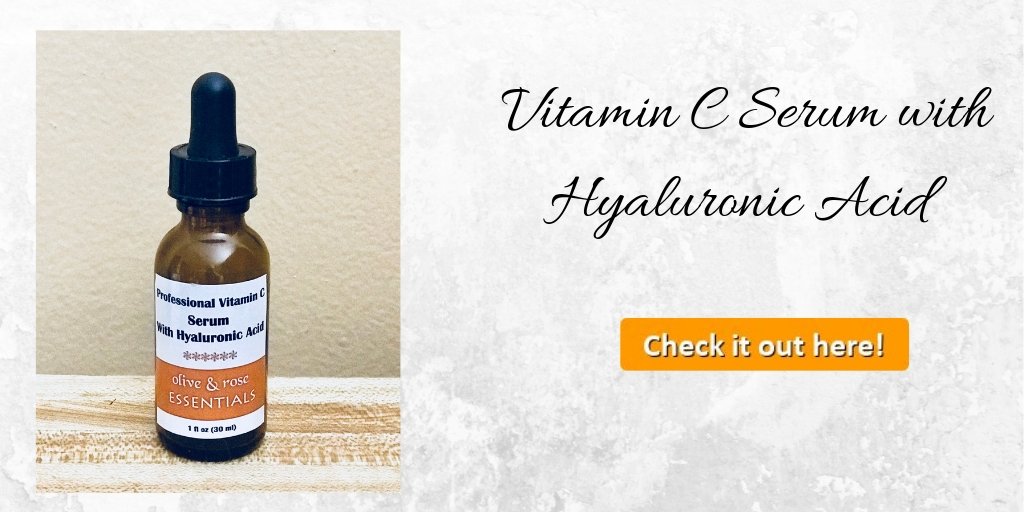Does hair dye cause cancer? It’s an important question, especially considering the high percentage of people, both men and women that dye their hair, along with the rise in cancer occurrence. Cancer is not caused by just one factor, but is a multi-faceted disease, even a small elevation in risk is significant. Hair dye contains chemicals, up to 5,000 in fact, with some of these chemicals shown to cause cancer in animals.

At least 1/3rd of women dye their hair, with one in 10 men coloring theirs, specifically men over 40. In the USA alone, up to 75% of women use hair dye in a variety of shades, underscoring the fact that the hair color industry is predicted to reach almost $30 billion this year (2020).
Arguments over whether chemicals in hair dyes is associated with increased cancer risk has been a ongoing for decades. Findings in the 1980s found that certain ingredients in hair dye were able to penetrate the skin, causing cancer in lab animals. Due to these findings, the FDA removed suspect ingredients including, toleunediamine, 2-nitro-phenylenediamine, and formaldehyde, a known carcinogen.
This removal downplayed perceived danger, giving people a false sense of security. Research since then has been inconclusive. Currently, hair dyes still contain petroleum-based chemicals, which are known to cause skin reactions, whether these chemicals are carcinogenic or not is still up for debate.
Hair dye also contain ammonia, a chemical known to cause respiratory problems – also, adhesive-based compounds that are linked to thyroid disruption, and other hormonal imbalances. PPD, or para-phenylenediamine is a common allergen, with darker dyes containing higher concentrations. Add to this list estrogenic compounds, which pose their own unique problems.
#commissions earned
Chemicals in hair dyes have been linked to cancers of the breast, ovaries, and bladder. Darker hair dyes pose more risk than do lighter-hued shades. Statistics show that Caucasian women use more hair dye than African American women, with hair relaxers being more common in the latter group. Associations were shown between using hair dye, along with chemical relaxers and straighteners, and a higher risk of breast cancer development
Interestingly, a study by Carcinogenesis found correlations between hair dye and black women, but no overall association between dye use and breast cancer risk in white women. Some studies have found correlations between hair dye and an elevated risk of leukemia and non-Hodgkin’s lymphoma, while other studies were not supportive of these findings.
Available epidemiological data found associations between hair dye and bladder cancer, while other studies were inconclusive. Additional data shows that hair stylists and colorists are at higher risk for developing cancer, as are those who dyed their hair before 1980.

Summary of Chemicals in Hair Dyes
- Hydrogen peroxide: Changes the structure of the hair, and is toxic when combined with PPD.
- Para-phenylenediamine (PPD): A petroleum-based chemical derived from coal tar that is associated with blood and liver toxicity.
- Parabens: Used as a preservative, methyparabens and propylparabens can cause allergies and skin irritation.
- Persulfates: Linked to asthma and lung damage, sulphates can not only irritate the skin, but fumes are toxic when inhaled.
- Toulene: A neurotoxin linked to allergic reactions and miscarriage.
- 4-ABP: A chemical linked to higher cancer risk.
- Ammonia: A respiratory irritant that can exacerbate asthma and is a possible endocrine disruptor.
- Lead acetate: A color additive implicated in neurological problems, including neurotoxicity and anemia.
- Resorcinol: An irritant, allergen, and endocrine disruptor that interferes with hormone signaling and function.
- DMDM hydantoin: A formaldehyde-containing preservative that can negatively impact immune function.
Natural Hair Dye Solutions
Below are some botanical-based permanent or semi-permanent hair dyes that are formulated with non-toxic ingredients, and are free from parabens, resorcinol, ammonia, and harsh chemicals:
1. Naturcolor Permanent Hair Dyes: Comes in 31 colors, which can be used separately, or combined to create custom colors.
2. Herbatint: Is free of ammonia, parabens, and resorcinol, although some shades do contain hydrogen peroxide, but no PPD.
3. Tints of Nature: Comes in semi-permanent and permanent colors. Shades can be mixed.
4. Henna: Will condition your hair, while giving it natural color and shine. Simply mix with water and apply to hair.
 Does Hair Dye Cause Cancer? / Key Points
Does Hair Dye Cause Cancer? / Key Points
Studies are conflicting in regard to hair dye and breast cancer risk, showing possible links, yet no definitive connection. Toxicity plays into cancer risk, and hair dye most certainly adds to toxic load.
The take home message is to reduce exposure to chemicals, whenever and wherever you can, including cleaning up your food and water supply, buying organic cosmetics and cleaning products, and upping your detoxification strategies.
I know the following piece of advice is a long shot for most women, but opt for lighter hair dyes rather than darker shades, when at all possible, and look for dyes that are formulated with organic and natural ingredients. Another strategy to protect yourself, albeit not as convenient, would be to use temporary hair dyes that don’t penetrate the hair shaft, as opposed to semi-permanent or permanent dyes, which cause permanent chemical changes in the hair. It’s worth considering…
Were you aware of the association between hair dye and cancer? Let me know in the comments:)
References:
(1) National Cancer Institute: Hair Dyes and Cancer Risk
(2) JOURNAL of the NATIONAL CANCER INSTITUTE: Examining the Link Between Hair Chemicals and Cancer
(3) WebMD: Hair Dyes Tied to Higher Breast Cancer Risk
(4) US National Library of Medicine National Institutes of Health: Personal use of hair dyes and the risk of bladder cancer: result of a meta-analysis.
(5) Google Scholar: Epidemiological evidence on hair dyes and the risk of cancer in humans.
(6) Safety.org: Hair Dye Epidemiology
This post contains affiliate links, which means I may receive a small commission, with no cost to you, if you make a purchase through one of my links.
Thank you so much for the awesome information! My wife and me both dye our hair and never thought much of it. We knew it had all the chemicals in it, but never really made that link that it could harm us. I’m also glad you have given some natural remedies. We will try some of those!!
Hi Jessie,
Thanks for reading my post and for checking out the natural hair dye alternatives. Chemicals are implicated in cancer so it’s good to reduce our exposure to them. I appreciate your comment:)
Wow, you have even done some very good research on this discourse first before bringing it up. I have to say that that’s a very good thing. I make use of dye regularly but never thought of it as a harmful substance. It has so many acids as well. I think it will be best if I just stay away from it. Nice post you got.
Thank you Henderson. Yes, hair dye can be problematic because of the chemicals in it that are absorbed through the skin directly into the bloodstream. Fortunately, natural options are available. Thanks for your comment:)
Not bad here. Your post has been very informative. I didn’t know the damage hair dye could cause. I don’t use it, but women in my family do. I will make them aware of the dangers. Thanks for sharing natural options with us, which seem much safer. Good statistics. Thank you for the eye opener.
Hi John,
Thanks for reading my post on hair dye and cancer. Hair dye contains toxic chemicals, and chemicals are implicated in cancer. We need to do all we can to reduce the toxic load on our bodies. Finding natural options are a great alternative to traditional hair dyes, and are much safer. I appreciate your comment:)